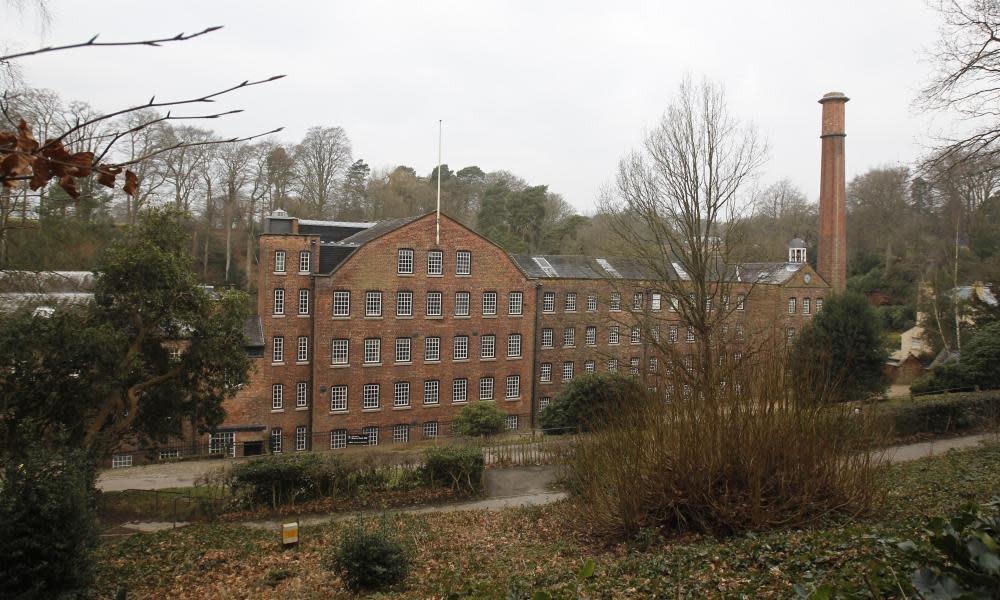Regulator's warning to avoid culture wars only increases strained relations with charities

To say that relations have been strained between the charity sector and its regulator in England and Wales, the Charity Commission, is something of an understatement. But the bitterness plumbed new depths at the weekend when the commission chair, Tina Stowell, chose to up the ante by warning charities against “getting drawn into the culture wars”.
Writing in the Mail On Sunday, Lady Stowell argued that while it was clear that charities could campaign on issues of direct concern to them provided they did not stray into party politics, they should avoid picking sides on high-profile issues that were creating new divisions in society – Brexit, free speech, the root causes of inequality and “how best to tell the story of British history”.
Such issues were often linked and discussion of them dominated by those with the strongest views, Stowell said. “For charities to survive and thrive in this environment, particularly after this most difficult of years, it is even more important that they demonstrate sensitivity and respect for everyone,” she wrote. “For people who are on both sides of some of these arguments and on none.”
Related: Charity Commission chair heralds new start for charities and government | David Brindle
Charity leaders reacted variously with perplexity and anger at the intervention. Karl Wilding, chief executive of the National Council for Voluntary Organisations (NCVO), who has in the past avoided open criticism of Stowell, tweeted: “Telling charities to avoid getting involved in culture wars ignores that people from all points of the political spectrum try to use charities as a means to further their point of view. That includes newspapers such as the one this article was placed in.”
Telling charities to avoid getting involved in culture wars ignores that people from all points of the political spectrum try to use charities as a means to further their POV. That includes newspapers such as the one this article was placed in.
— Karl Wilding (@karlwilding) November 29, 2020
Caroline Slocock, director of the Civil Exchange thinktank, which aims to strengthen civil society, and a former senior civil servant and private secretary to Margaret Thatcher and John Major, said on Twitter it was “astonishing” and “worrying” that Stowell seemed not to have read the Charity Commission’s own guidance on campaigning “which allows for exactly the kind of non-party political activity she’s attacking”.
Astonishing the #CharityCommission's chair has not read their own guidance on Campaigning and Political Activity (attached), which allows for exactly the kind of non-party political activity she's attacking eg calling for changes to stop poverty, not just ameliorate it. Worrying https://t.co/uSk5oZw0WJ pic.twitter.com/ir5td0BRvG
— caroline slocock (@carolineslocock) November 29, 2020
Stowell’s three-year term of office ends next February and she has said she is not seeking a second term. She has had a strained relationship with the charity sector from before her appointment, having been seen as a political choice – she was a Conservative peer but has sat as an independent while at the commission – with little relevant background as a former head of corporate affairs at the BBC.
When she was named as chair, the Commons digital, culture, media and sport select committee unanimously declined to endorse her selection, citing her “complete lack of experience” and “lack of any real insight, knowledge or vision”. Its concerns were rejected.
While in post, Stowell has focused increasingly on the issue of public trust and confidence in charities. When she presented the commission’s most recent annual report in July, she said: “Success depends now, as it did in the past, on charities meeting public expectations of what charity means in the way that they go about their work – whatever a charity’s cause, type or size.
“That is why being clear about the standards people expect of charity – humility, decency, commitment and accountability – and ensuring they are met is so important to the future of the sector.” The commission, she added, “needs to be better able than we are now to remove from the register organisations where this is warranted”.
Many charities have seen this stance as a threat to their freedom to campaign. But Stowell’s Mail on Sunday article appears to go still further: its reference to interpretation of British history is being taken as an allusion to controversy over the National Trust’s recent report on its properties’ links to slavery, which sparked heated debate on social media and in some newspapers, including the Daily Mail.
Related: Sign up for Society Weekly: our newsletter for public service professionals
In response to a freedom of information request by Third Sector magazine, the Charity Commission said it received three complaints [£paywall] about the National Trust’s work and purpose between 1 August and 20 October – although the trust itself has reported almost 800 complaints from its 5.6 million members.
Ten charity umbrella bodies last month wrote a joint letter to MPs on the culture select committee asking them to put pressure on the government to ensure Stowell’s successor would be politically neutral. In addition to the criticism that has surrounded her, her two immediate predecessors also faced accusations of partiality – William Shawcross towards the Tories and Dame Suzi Leather towards Labour.
The letter, which the NCVO did not sign, said: “This recruitment process is an opportunity to reset the relationship between charities and the non-executive of the Charity Commission, and to end 14 years of criticism about party political appointments.”

 Yahoo Movies
Yahoo Movies 
